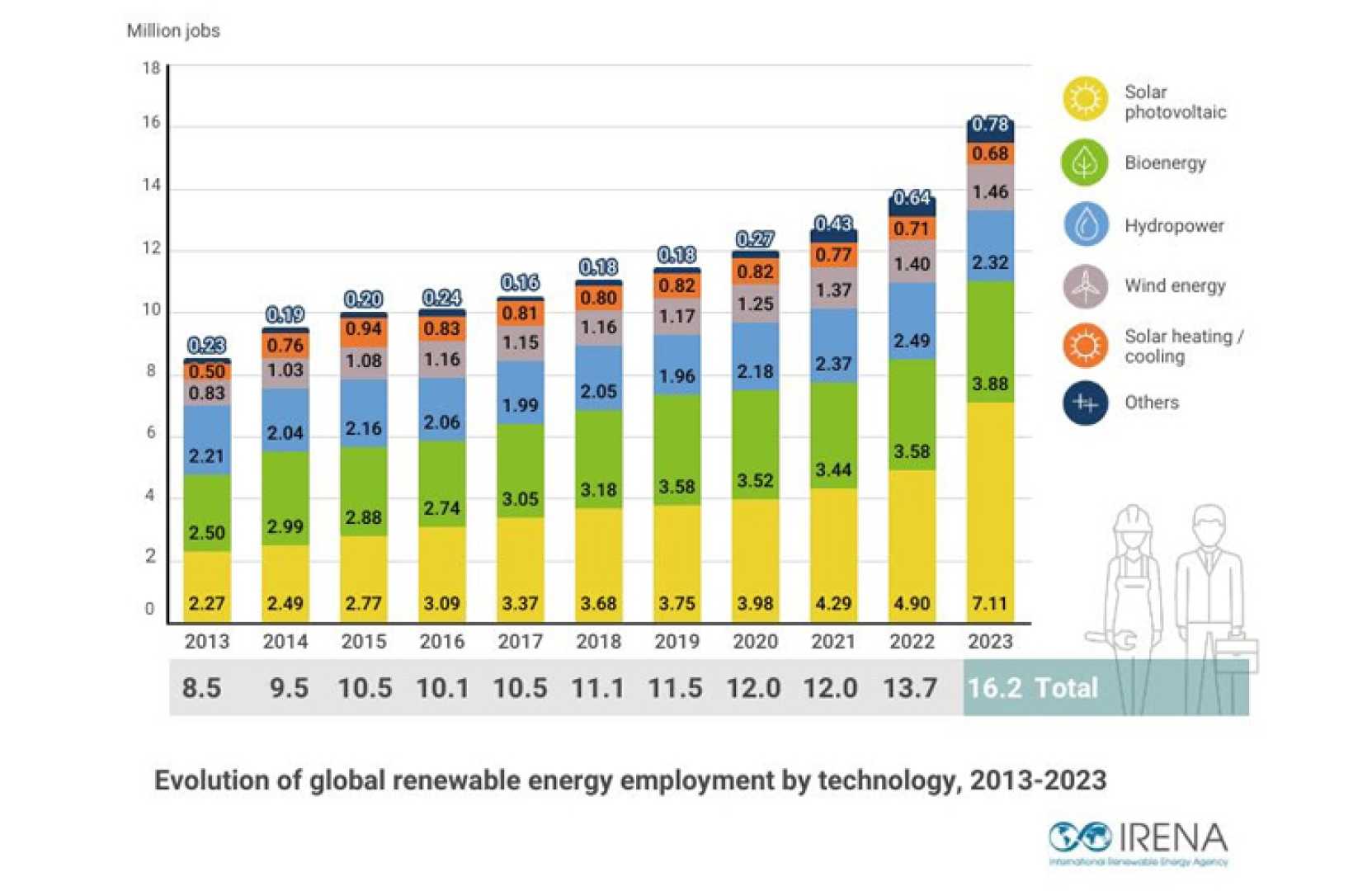Business
Clean Energy Jobs Growth Slows Amid Policy Uncertainty

WASHINGTON, D.C. — Clean energy jobs in the United States grew significantly in 2024, outpacing the rest of the economy, according to a new report from E2, a group promoting clean energy. However, the growth rate slowed compared to the previous year due to uncertainties surrounding U.S. energy policy.
The report reveals that nearly 100,000 jobs were added in solar, wind, batteries, energy efficiency, grid upgrades, biofuels, and electric vehicles, bringing the total clean energy workforce to approximately 3.56 million. This figure surpasses the number of individuals employed as nurses, cashiers, or elementary school teachers.
Despite the increase, the clean energy sector saw a decline in job growth, with 50,000 fewer positions compared to 2023, marking the slowest pace since 2020. Analysts attribute this slowdown to a weakening economy and uncertainty regarding future energy policies, particularly since President Trump‘s administration has blocked renewable energy projects and reduced tax credits.
“Clean energy was one of the hottest and most promising job sectors in the country at the end of 2024,” said Bob Keefe, executive director of E2. “Now, clean energy job growth is at serious risk — and with it, our overall economy.”
The findings also note that since January 2025, $22 billion worth of clean energy projects have been canceled, which could have created over 16,500 jobs. Other analyses suggest that up to 830,000 jobs could be lost due to recent policy changes.
Energy efficiency remains the largest employer in the sector, with nearly 2.4 million workers, while renewable generation jobs reached 569,000. The clean vehicle sector, despite a decline of 12,000 jobs in 2024, has seen an overall increase of 52% since 2020.
Regionally, the South leads the clean energy job market with over 1 million workers, followed by significant job gains in the West and Northeast. Currently, 23 states have at least 50,000 clean energy jobs, with employment in clean energy now surpassing fossil fuel jobs in all but eight states.
“Every year, clean energy jobs become more intertwined and critical to our overall economy,” said Michael Timberlake, E2’s director of research and publications. “These jobs are now a vital anchor of America’s energy workforce.”












